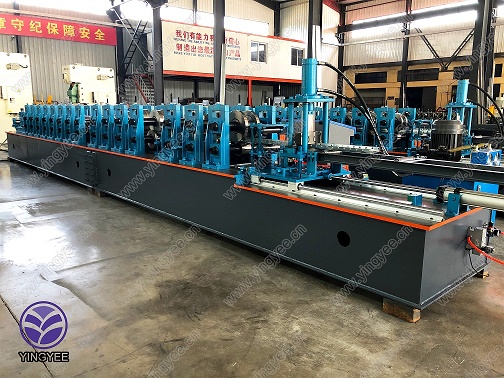
Understanding Type Screw Rolling Machines
Type screw rolling machines are specialized equipment used in the manufacturing and production of screws and various fasteners. These machines operate on the principle of cold forming, which enhances the mechanical properties of the materials involved, resulting in high-strength products. With the increasing demand for precision-engineered components in various industries, understanding the functionality and advantages of screw rolling machines is essential.
Principle of Operation
At the core of a screw rolling machine is its ability to reshape metal workpieces through the application of pressure. The process begins with a metal rod, typically made of steel. This rod is fed into the machine where it is subjected to rolling through specifically designed dies. These dies are meticulously crafted to create the desired thread pattern and diameter of the screw. As the rod passes through the dies, it is deformed plastically, resulting in a screw shape without any cutting.
The cold rolling process is advantageous because it enhances the mechanical properties of the material. During deformation, the grains of the metal become elongated and aligned in the direction of flow, leading to increased strength and hardness. This makes screws produced through this method superior in terms of performance compared to those made by traditional cutting methods.
Advantages of Screw Rolling Machines

One of the key benefits of using screw rolling machines is their high production efficiency. They can produce screws at a rapid rate, significantly reducing lead times in manufacturing. This efficiency is complemented by the minimal waste produced, as most of the material is utilized in the final product, promoting sustainability in manufacturing processes.
Moreover, the precision offered by these machines is notable. Screw rolling machines can create intricate designs with tight tolerances, making them ideal for applications that require high precision, such as automotive and aerospace industries. The consistency of the finished products is another highlight, ensuring that each screw meets the specified standards.
Applications
Type screw rolling machines find applications across various sectors, including construction, electronics, and machinery manufacturing. In construction, they produce screws used in assembling structures. In the electronics industry, precision screws are essential for the assembly of sensitive devices, while machinery manufacturing relies on durable screws for equipment assembly and maintenance.
Conclusion
In summary, type screw rolling machines play a vital role in modern manufacturing. They combine efficiency, precision, and strength to produce high-quality screws and fasteners essential for numerous applications. As industries continue to evolve, the importance of these machines and the processes they enable will undoubtedly grow, making them a cornerstone of advanced manufacturing technology. Understanding their operation and advantages is essential for anyone involved in production or engineering, as it can lead to more informed decision-making regarding manufacturing processes.